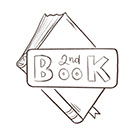ELTB 2.0500: Difference between revisions
No edit summary |
No edit summary |
||
| Line 3: | Line 3: | ||
{{th}} | {{th}} | ||
{{3cr|Meditate on the word of God | |||
}} | |||
{{3cr| | |||
The clean animals are the ones the Hebrews were allowed to eat | |||
}} | |||
{{3cr| | |||
. They symbolize the people we should learn from. | |||
}} | |||
{{3cr| | |||
The clean animals of the Bible are described as those who 'chew the cud'. | |||
}} | |||
{{3cr| | |||
The actual word 'gerah' means to 'pursue the revelation that was not understood'. | |||
}} | |||
{{3cr| | {{3cr| | ||
The cow will eat something and regurgitate it, up to three times, to chew it again and again until everything is digested. The teacher who is represented by the clean animal, learns from God's word, then 'chews the cud', thinking about it over and over again. | |||
The | |||
}} | }} | ||
{{3cr| | {{3cr| | ||
The symbol of the cow reminds us to learn from people who spend time meditating (or chewing) on God’s word. | |||
}} | }} | ||
|} | |} | ||
Revision as of 14:48, 17 January 2023
| Meditate on the word of God
|
Notes
|
Art
|
|
|
The clean animals are the ones the Hebrews were allowed to eat
|
Notes
|
Art
|
|
|
. They symbolize the people we should learn from.
|
Notes
|
Art
|
|
|
The clean animals of the Bible are described as those who 'chew the cud'.
|
Notes
|
Art
|
|
|
The actual word 'gerah' means to 'pursue the revelation that was not understood'.
|
Notes
|
Art
|
|
|
The cow will eat something and regurgitate it, up to three times, to chew it again and again until everything is digested. The teacher who is represented by the clean animal, learns from God's word, then 'chews the cud', thinking about it over and over again.
|
Notes
|
Art
|
|
|
The symbol of the cow reminds us to learn from people who spend time meditating (or chewing) on God’s word.
|
Notes
|
Art
|
